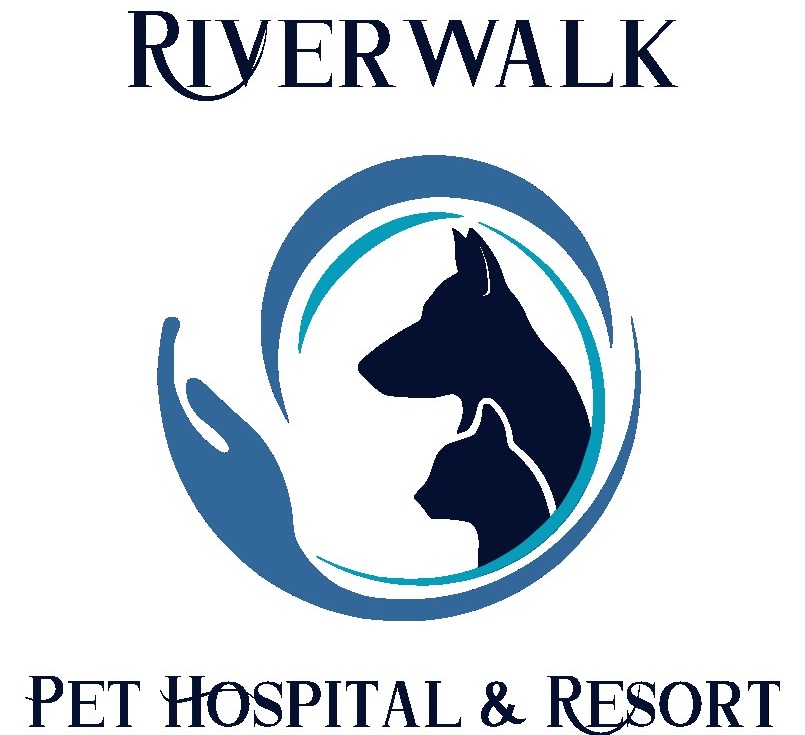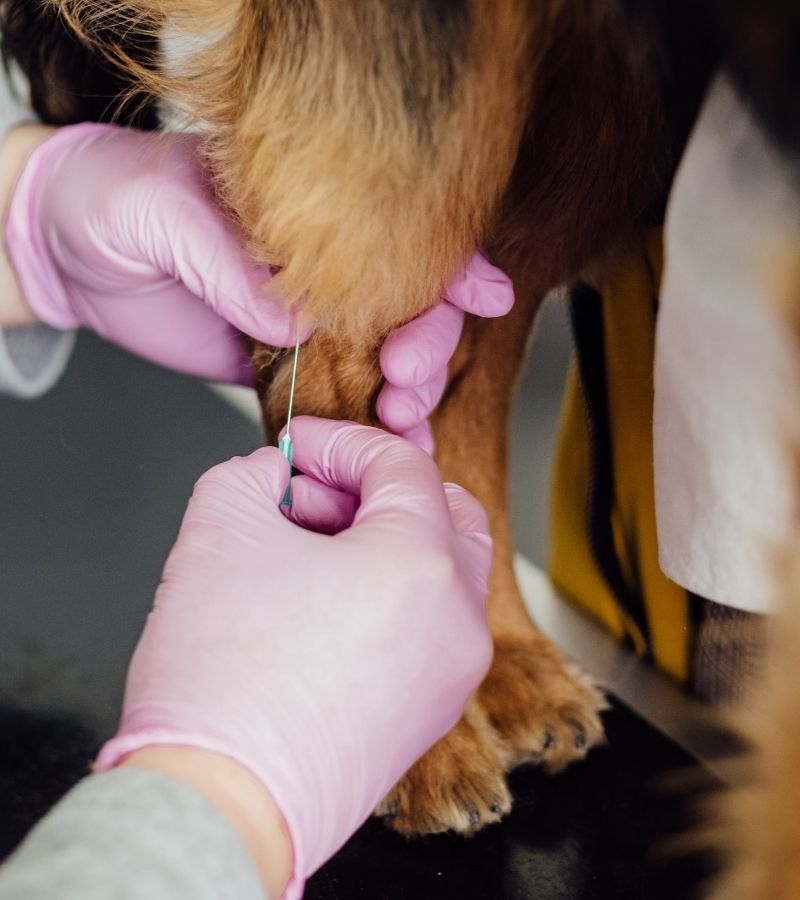Riverwalk Pet Hospital & Resort
Pet Diagnostics
Pet Diagnostics
At Riverwalk Pet Hospital & Resort, we utilize a broad spectrum of in-house diagnostic tools to help us manage the ongoing health of our patients.
Bloodwork
In cases of illness, wellness/preventative care visits, and prior to surgery, our doctors will recommend performing bloodwork to better evaluate your pet’s organ functions. Most commonly run is a CBC and a Biochemistry. Biochemistry will provide values that are reflective of many systems, including kidney and liver function, blood glucose, and electrolytes. CBC will provide values that evaluate for signs of anemia or inflammation.
In certain cases, more specific tests may be run such as thyroid levels, ACTH stimulation, or a GI panel. Numerous options are available to aid in the diagnosis and management of disease and your doctor will describe in detail what each test provides and what the results indicate.
Urinalysis
Collection and analysis of the urine can help diagnose potential urinary tract infections, evaluate kidney function as well as other conditions.
If bacteria are present in the urine, a culture and sensitivity will often be recommended to ensure the appropriate antibiotic is used to treat the infection.
Cytology
If your pet has a skin or ear infection or has masses our doctors will offer to perform cytology to better evaluate what is occurring. Cytology consists of collecting samples of cells in the area of interest and examining them under the microscope to identify bacteria, fungus, mites, or evaluate the type of cells a tissue or mass is comprised of.
Secondary evaluation by a board-certified pathologist may be recommended by your pet’s doctor to confirm the results of the cytology.
Histopathology
If your pet is having a mass removed it is recommended to submit the mass for histopathology. This will allow identification of what the mass is and if the mass was fully removed.
By identifying what the mass is, your pet’s doctor can better diagnose and treat your pet.
Digital radiography
Our facility provides on-site, state-of-the-art, digital radiography to aid in the quick diagnosis of many disorders and ailments. As an added benefit to our clients and patients, we utilize the expertise of our staff veterinarians as well as Board Certified Veterinary Radiologists for radiograph interpretation.
Ultrasound
A safe, non-invasive, painless diagnostic imaging tool used to examine a pet’s internal organs without having to resort to exploratory surgery. With ultrasound, a veterinarian can observe and study how an organ or process is functioning versus relying completely on a single point-in-time picture (radiography). As an added benefit to our clients and patients, we utilize the expertise of our staff veterinarians as well as Board Certified Veterinary Radiologists for ultrasound interpretation.
Electrocardiography (ECG) services
An ECG is a test used to measure the rate and regularity of a pet’s heartbeat, assess heart damage, and determine the size and position of the heart chambers. ECG is a non-invasive, painless procedure that when paired with radiographs, ultrasound, and/or blood work can assist the veterinarian with diagnosing a pet’s heart condition. Our hospital provides ECG services as well as consultations with veterinary cardiology specialists.
laboratory
Riverwalk Pet Hospital & Resort is proud to offer our patients on-site laboratories at our facility. Our laboratory equipment allows us the ability to perform many types of tests that can aid in the proper diagnosis and treatment of your dog or cat. Our veterinary hospital has the capability to perform many diagnostic tests on-site, including:
- Serum chemistry
- Hematology/Complete blood count
- Blood clotting times
- Skin scrapes
- Urinalysis
- Parasite tests (heartworm and intestinal)
- Cytology
- Virus detection (parvo, feline leukemia, feline immunodeficiency)
- Pancreatitis testing
- Thyroid screening
To enable an even broader spectrum of diagnostic capabilities, our hospital also utilizes the services of referral diagnostic labs such as: Antech Diagnostics, Idexx Reference Laboratory, Texas Veterinary Medical Diagnostic Laboratory and the University of Minnesota Urolith Center. To name a few of the diagnostic tests available to us through referral:
- Bacterial and fungal cultures
- Histopathology
- Fungal cultures
- Thyroid panels
- Culture and Sensitivity
- Tick panels

